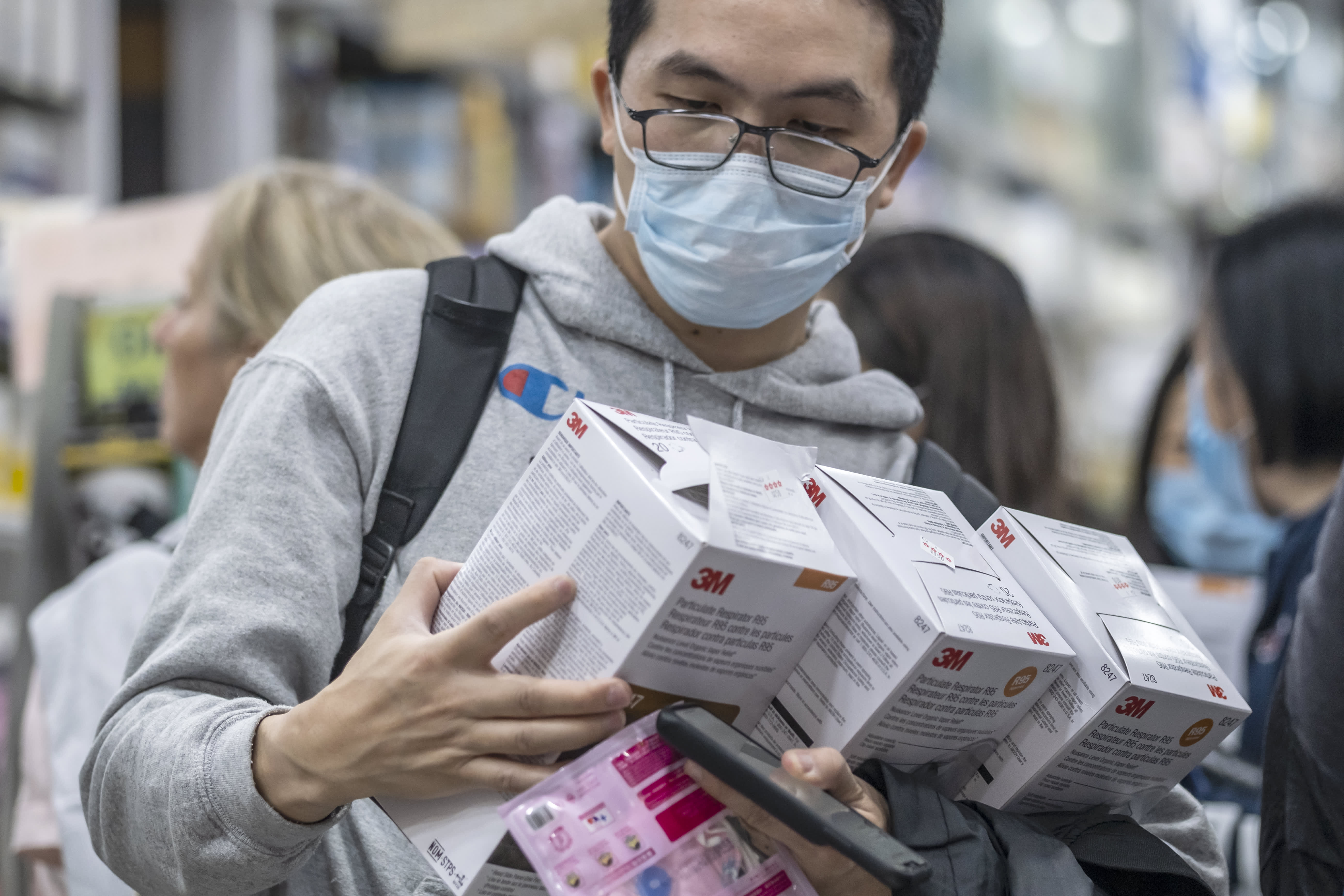From the streets of Beijing to Milan Fashion Week, people around the world are turning to protective masks and respirators to try and reduce the risk of infection amid the global outbreak of coronavirus.
Demand is so high that it’s increasingly difficult to order respirators on e-commerce platforms like Amazon.
“We’re seeing outbreaks develop in new countries every day. But even the countries where there isn’t a widespread outbreak are working really hard to prepare right now, in case they do have that situation,” Dr. Nikki McCullough, 3M‘s global head of safety, told CNBC.
To fill the surge in demand for the devices, particularly the N95 respirator, 3M is ramping up production, which means hosting job fairs, making offers on the spot and expanding its assembly line with robots.
In Aberdeen, South Dakota, more than 650 employees at one of 3M’s largest manufacturing facilities are working overtime to increase face mask production.
“We immediately ramped up production in this facility,” Andy Rehder, plant manager at 3M, said. “We have capacity to do that and we did that immediately … really from a more standard five-day to a seven-day week.”
Experts told CNBC the supply of masks could play a role in the speed at which the COVID-19 virus spreads, and with no vaccine on the market medical workers are relying on protective gear to reduce the risk of infection.
“I think that the biggest challenge for everyone around the world is how fast this is moving around the globe and that it is right now affecting every continent except Antarctica,” said McCullough, who helped develop the N95 respirator. “So every country around the world is trying to respond.”
The Department of Health and Human Services said earlier this week the U.S. currently has a stockpile of roughly 30 million N95 respirators; however, it needs nearly 300 million as the risk of a U.S. coronavirus outbreak continues to rise.
Prestige Ameritech, based in North Richland Hills, Texas, said it received a total order of 100 million N95 respirators from Taiwan, Hong Kong and Singapore.
The N95 respirator filters 95% of airborne particles, and can even filter out bacteria and viruses, according to the Centers for Disease Control. Many face masks on the market, including surgical masks, do not effectively filter out particles in the air.
Health-care professionals are concerned that 3M and other respirator manufacturers like Honeywell and Kimberly-Clark won’t be able to fulfill all the orders flooding in.
“We know what we have to do and we know we have to keep our numbers up and we know we have to keep ourselves safe and we need to put out great quality and that’s what we come out here to do,” said Tim Hofer, a 3M machine production operator.
For factory workers inside the 450,000-square-foot 3M facility, the global demand for their product is providing some perspective for their work.
“It’s easy to get caught up in just the monotony of factory work,” said Amber Lutz, 3M’s lead machine operator, “and when you sit back and think about what we’re doing is really so impactful on people.”
—CNBC’s Patrick Manning contributed to this report.
